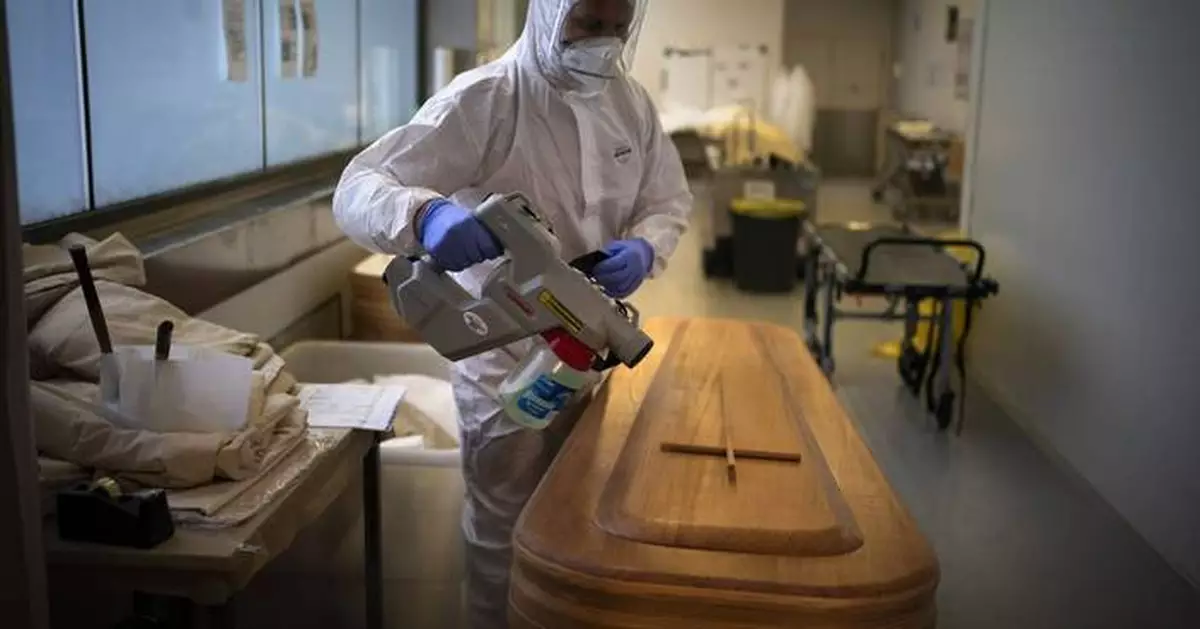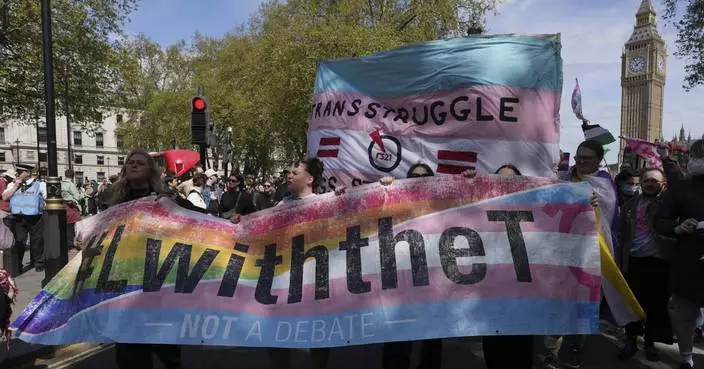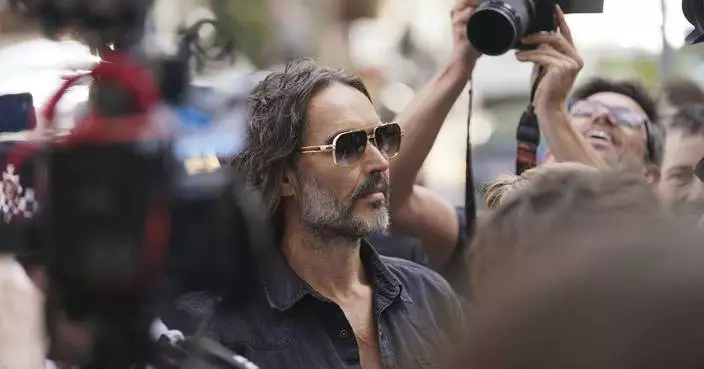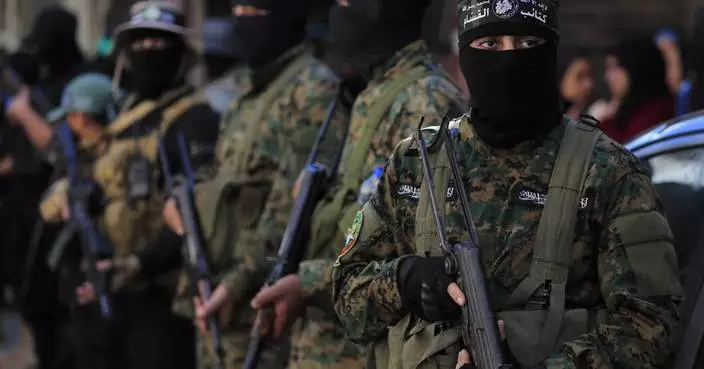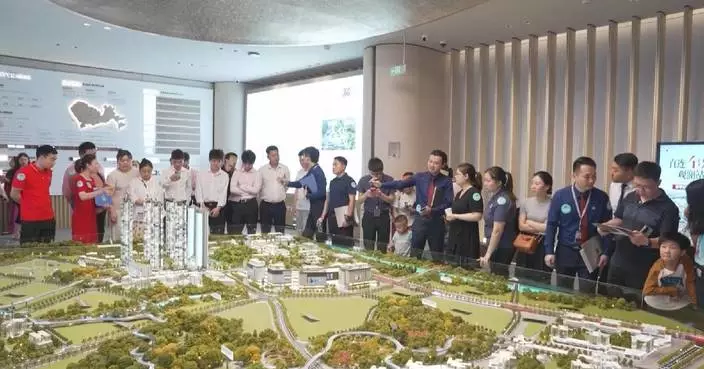LONDON (AP) — Five years after COVID-19 triggered national lockdowns, economic uncertainty and killed millions, the World Health Organization’s member countries agreed on a draft “pandemic treaty” that sets guidelines for how the international community might confront the next global health crisis.
After the world’s largely disastrous response to the coronavirus, countries tasked the WHO with overseeing a pandemic treaty in 2021. Negotiations concluded early Wednesday on an agreement expected to be adopted next month at the U.N. health agency's annual meeting in Geneva.
WHO Director-General Tedros Adhanom Ghebreyesus heralded it as a historic moment, saying countries have proven that “in our divided world, nations can still work together to find common ground and a shared response.”
Following U.S. President Donald Trump's decision to withdraw the country from the WHO in January, American officials were barred from participating in the talks by the Trump administration and are not expected to sign the treaty.
During COVID-19, it was largely American research and development that produced the most effective vaccines and medicines.
Weeks after Trump’s decision, Argentina’s President Javier Milei also exited the WHO, citing “profound differences” with the U.N. agency.
Rachael Crockett, of the advocacy group Drugs for Neglected Diseases Initiative, described the draft pandemic treaty as “a product of compromise.” She said it contained strong provisions, but only if countries chose to implement them: “This could change what we saw in COVID, when some populations didn’t get access to what they needed.”
The draft treaty notably includes a provision to guarantee that countries that share critical virus samples receive any resulting tests, medicines and vaccines, with the WHO to hold up to 20% of such products to ensure poorer countries get supplies. Negotiations on this provision are expected to continue after the treaty is likely accepted by member countries in May.
Crockett acknowledged that, as is often the case with international law, there are few consequences for countries that don’t comply: “There’s not much that can be done if countries choose not to ratify or abide by it.”
Yuanqiong Hu, of aid organization Doctors Without Borders, said that if disputes arise between countries, the treaty includes a mechanism for them to use diplomatic channels, followed by arbitration.
Countries are already legally bound by the International Health Regulations to do things like quickly report dangerous new outbreaks. But those have been flouted repeatedly, including by African countries during Ebola and other outbreaks, China in the early stages of COVID-19 and arguably the U.S. amid its ongoing bird flu epidemic.
The Associated Press Health and Science Department receives support from the Howard Hughes Medical Institute’s Science and Educational Media Group. The AP is solely responsible for all content.
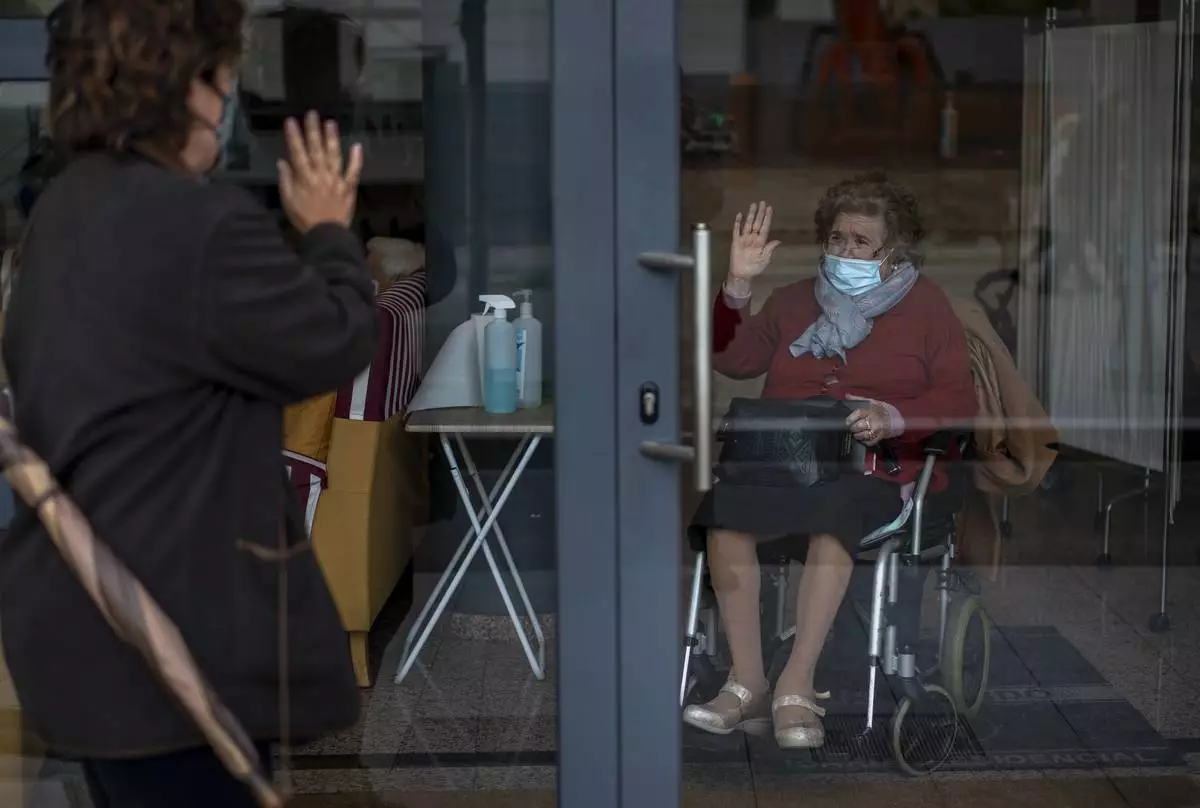
FILE -Angels Trepat, 59, says through a window goodbye to her mother Angelina, 91, after visiting her at the Icaria nursing home in Barcelona, Spain, Friday, Nov. 27, 2020. (AP Photo/Emilio Morenatti, File)
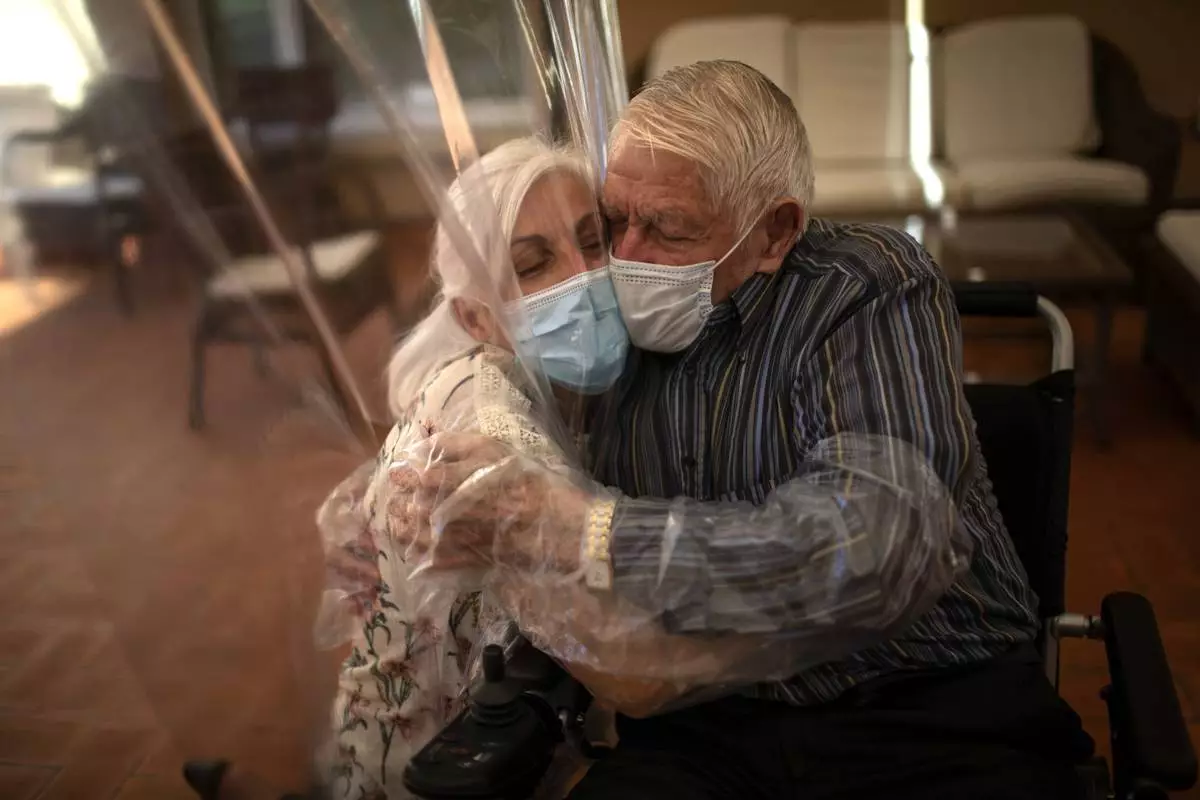
FILE - Dolores Reyes Fernández, 61, hugs her father, José Reyes Lozano, 87, for the first time in nearly four months as visits resume at the nursing home in Barcelona, Spain, Monday, June 22, 2020. (AP Photo/Emilio Morenatti, File)
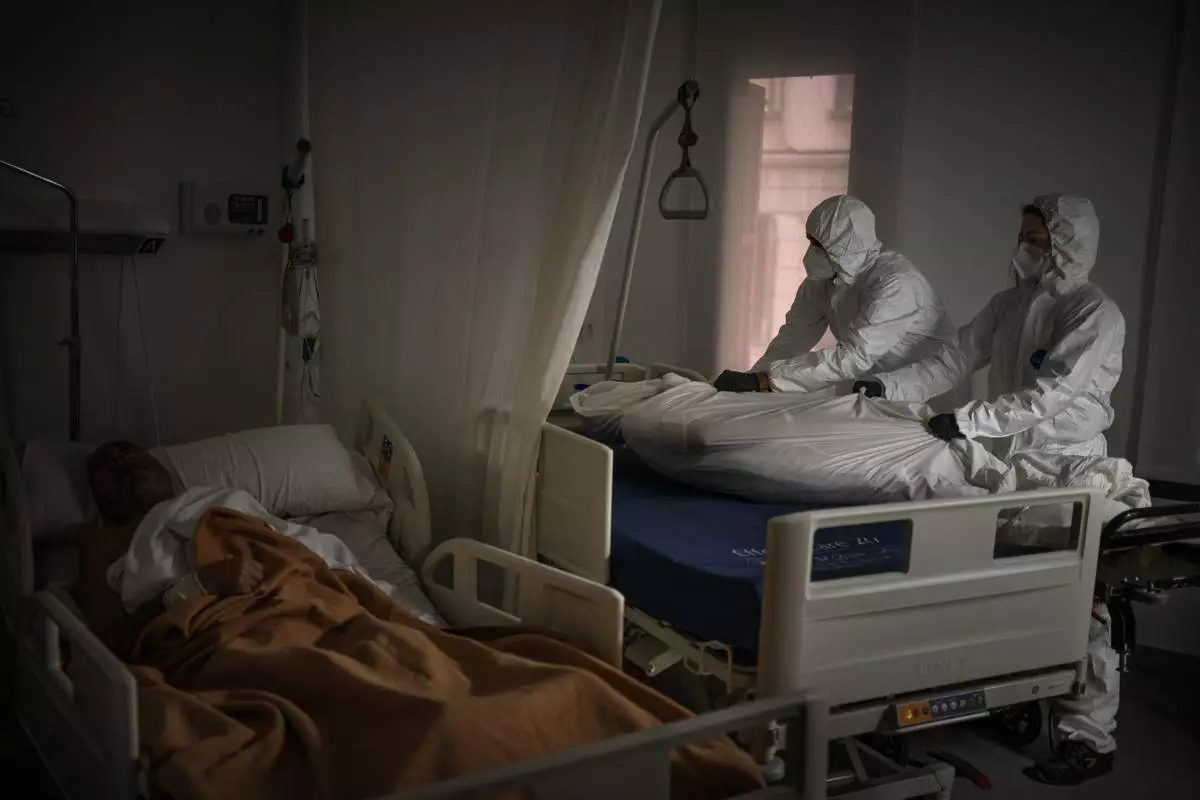
FILE - Wearing protective suits, funeral home workers remove the body of an elderly person who died of COVID-19 at a nursing home while another resident sleeps in his bed in Barcelona, Spain, Thursday, Nov. 5, 2020. (AP Photo/Emilio Morenatti, File)
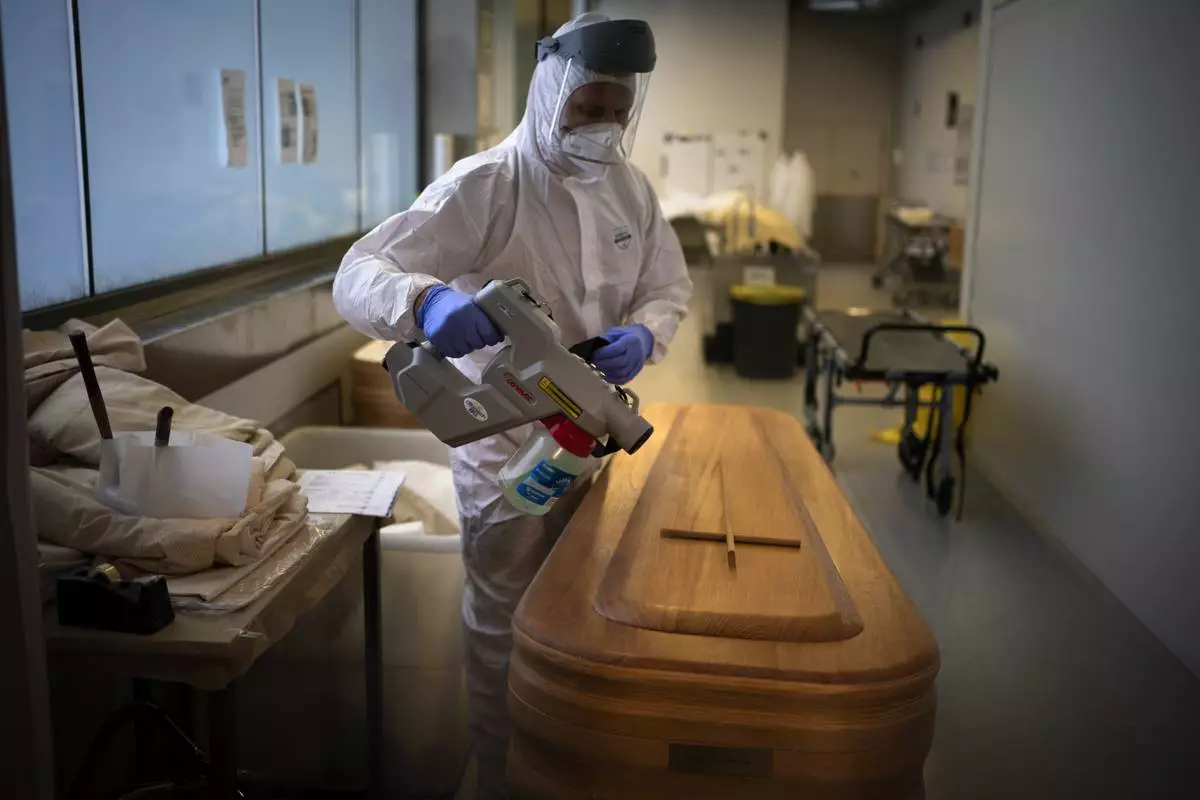
FILE - A mortuary worker disinfests a coffin carrying the body of a person who died of COVID-19 ahead of a funeral at Memora mortuary in Girona, Spain, Thursday, Feb. 4, 2021. (AP Photo/Emilio Morenatti, File)
MINNEAPOLIS (AP) — Right after Sunday worship at St. Paul’s-San Pablo Lutheran Church, Juan Carlos Toapanta lay in a lounge chair set up by the altar, needles sticking out of his forehead, wrist and foot for an hourlong acupuncture session.
“Just like the Lord’s light helps emotionally, the body’s pain is treated as well,” said the Ecuadorian construction worker, who suffers from sciatica and has worshipped at the Minneapolis church for about five months. “Everything feels freed, emotionally.”
Founded by Swedish immigrants in the late 19th century, the church is now a predominantly Latino congregation. Like most other churches in the U.S. that serve migrants, it has expanded its humanitarian, financial, legal and pastoral ministries during the Trump administration’s immigration crackdown.
It has also added monthly well-being sessions — at no charge — with acupuncture, Reiki and cupping therapy to ease the stress that uncertainty and fear have sown among the migrant community — including people in the U.S. illegally and U.S.-born citizens in mixed-status families.
“We have to feel well to respond well, not with panic and fear, which leads to nothing good,” said Lizete Vega, who has spearheaded the well-being efforts as the church’s Latino outreach coordinator. “People here feel that they’re protected and can be cared for spiritually, emotionally and physically.”
Faith leaders have increasingly found themselves called to help their congregations with mental health concerns, from chaplains in the U.S. Navy to pastors in the rural heartland.
Some see the need to provide reassurance and well-being as a growing part of their ministry to migrants, even as revised federal immigration guidelines now provide more leeway for enforcement in or near houses of worship.
“It was as if they were able to exhale a big breath,” the Rev. Hierald Osorto said of the 30 congregants who signed up for the first well-being session in March at St. Paul’s, where an outdoor mural features two traditional Swedish Dala horses between the Spanish words “sanación” (healing) and “resiliencia” (resilience).
After last Sunday’s worship, the altar table and Easter lilies were moved to make room for seven acupuncture chairs, arranged in a circle facing the central cross. Three massage tables were set up in front of the pews for the Reiki treatment, where practitioners hold their hands on or near the body’s energy centers.
“To see this space be quite literally a place of healing, in the place where we talk about it right at the altar, it moved me to tears,” Osorto said.
Wellness practitioners and mental health clinicians say anxiety and depression among those they serve in migrant communities have spread and intensified this year.
Already, migrants often arrive with severe trauma from violence they fled in their home countries as well as attacks along cartel-controlled routes to and through the U.S. border.
Women in particular often suffer sexual violence on the journey. For many, the fear that they or someone in their families might be deported is revictimizing. That makes it imperative that “safe places” exist where they can focus on wellness, said Noeline Maldonado, executive director of The Healing Center, which helps domestic and sexual violence victims in Brooklyn, New York.
Sessions that promote grounding and mindfulness are necessary to cope with the stress of both immediate crises as well as long-term unpredictability as immigration policies shift.
“Uncertainty is the biggest thing,” said Cheryl Aguilar, director of Hope Center for Wellness in the Washington, D.C., area, which has partnered with churches to provide mental health programs.
Being in community and cultivating hope is crucial because many people are responding to fear with rising anxiety, traumatic symptoms and isolation, all of which can have lasting consequences, Aguilar added.
“It’s nonstop work, nonstop fear,” said Sarah Howell, a clinical social worker in Houston with more than a decade of experience in migration-related trauma. “Every issue seems bigger.”
Howell said many of her clients in Texas are realizing they can’t live in a state of constant alarm, and the respite that wellness programs can bring becomes essential.
“People feel hopeless, but they have to keep fighting,” said Guadalupe Gonzalez, one of the bilingual Reiki practitioners whose organization, Odigo Wellness, partnered with St. Paul's in Minneapolis to offer the sessions.
She said she had some doubts about offering these healing practices inside a church — a large space with light flooding in and people moving through.
“But the sanctuary has a very nice, very positive energy,” Gonzalez said. “As practitioners we feel a lot of emotions.”
Several congregants who attended last Sunday’s two-hour wellness session said they felt both the energy and the connection between these healing practices and faith.
Martha Dominguez came bouncing down the altar steps after an acupuncture session. Grinning, she said she had never imagined a church would offer these kinds of “benefits.”
“Yes, it helps so much,” said the Mexican immigrant. “It takes the stress away from you.”
Limber Saliero, a roofer from Ecuador who has been worshipping at St. Paul’s for five years, said he had never heard of acupuncture but decided to try it.
“I felt like an energy that was flowing into me,” he said.
Vanessa Arcos tried acupuncture with her sister and her father, while her mother got a Reiki treatment. The family started attending the church the week they arrived in Minnesota from their home state of Guerrero, Mexico, almost a decade ago.
Lying in the lounge chair next to a statue of the Virgin of Guadalupe, Arcos said she overcame her fear of needles and found the treatment relaxing for both muscles and mind.
“It felt very peaceful, very safe,” Arcos said. “It’s important to do little things for yourself.”
Associated Press religion coverage receives support through the AP’s collaboration with The Conversation US, with funding from Lilly Endowment Inc. The AP is solely responsible for this content.
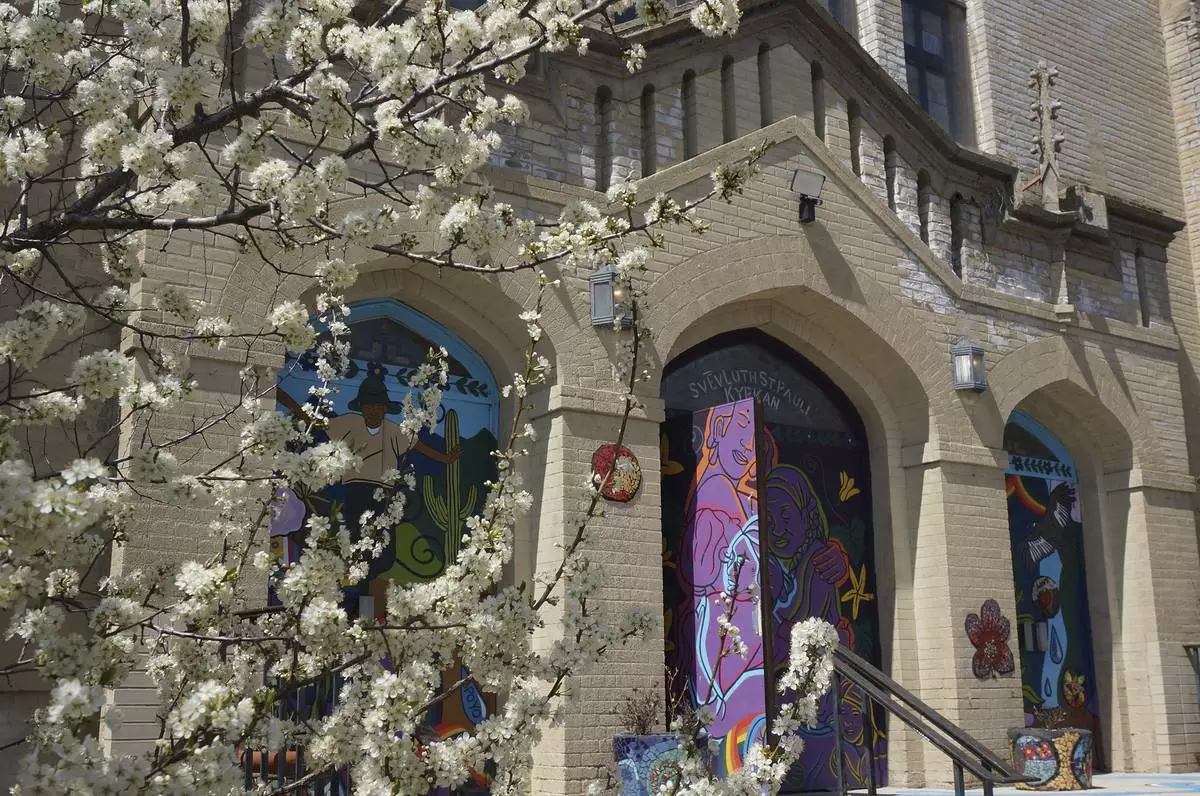
Spring blossoms bloom on a tree next to the entrance of St. Paul’s-San Pablo Lutheran Church, a congregation founded by Swedish immigrants in the late 19th century that has started offering wellness programs in its sanctuary as part of its migrant ministry, in Minneapolis, Sunday, April 27, 2025. (AP Photo/Giovanna Dell’Orto)
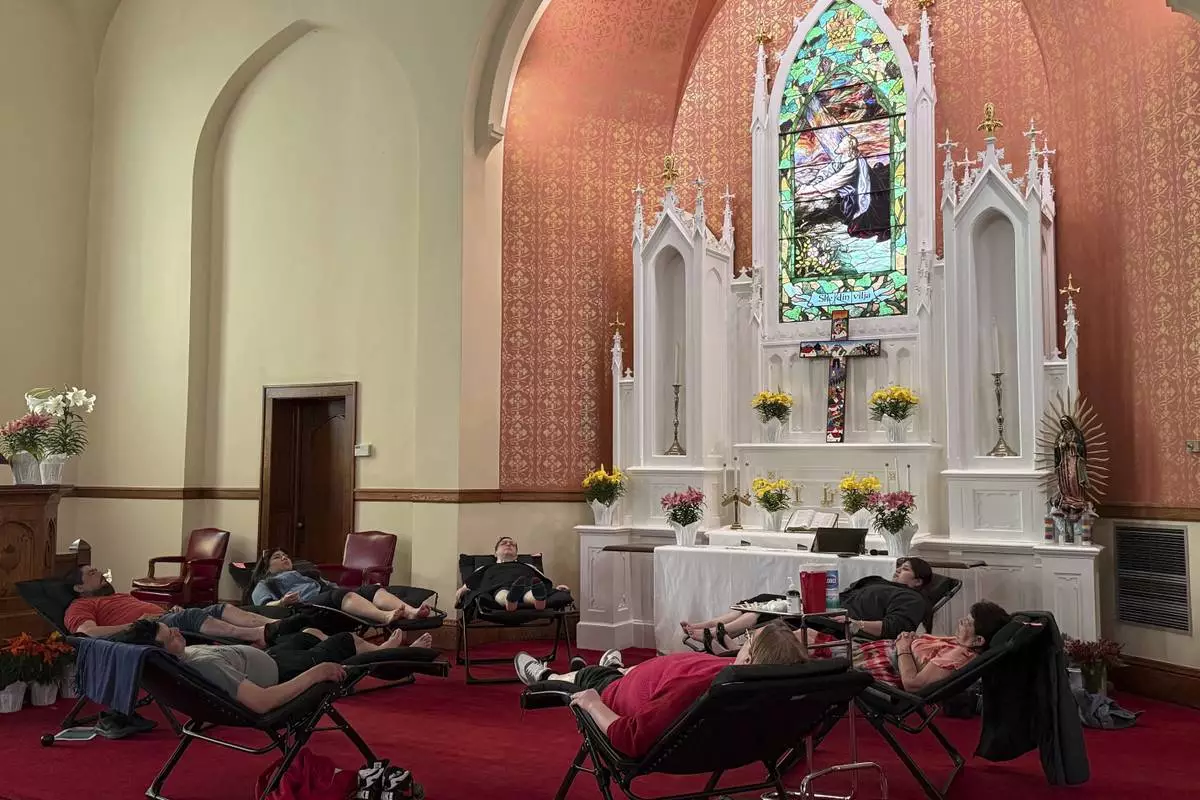
Congregants of St. Paul’s-San Pablo Lutheran Church receive acupuncture treatments in the sanctuary after worship during a wellness program the church started as part of its migrant ministry, in Minneapolis, Sunday, April 27, 2025. (AP Photo/Giovanna Dell’Orto)
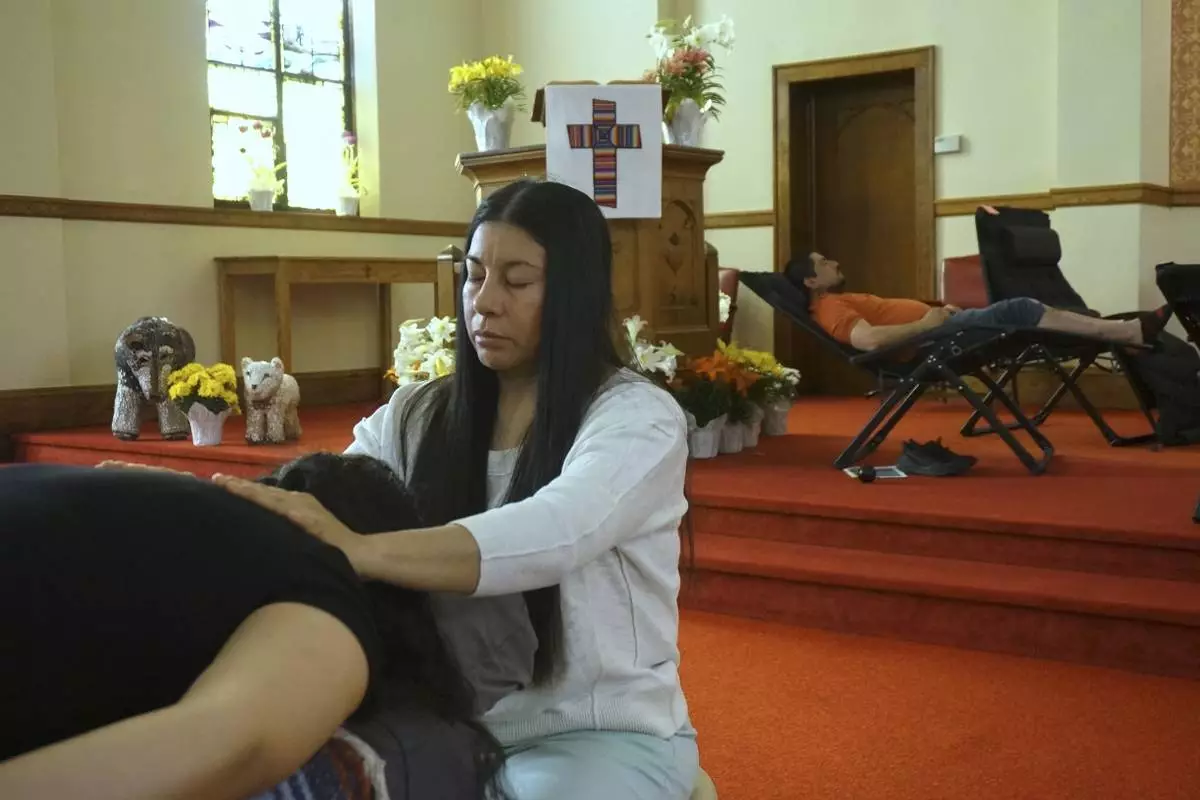
Guadalupe Gonzalez performs a Reiki treatment as Limber Saliero, background right, undergoes an acupuncture session in the sanctuary of St. Paul’s-San Pablo Lutheran Church, which recently added wellness programs as part of its migrant ministry, in Minneapolis, Sunday, April 27, 2025. (AP Photo/Giovanna Dell’Orto)
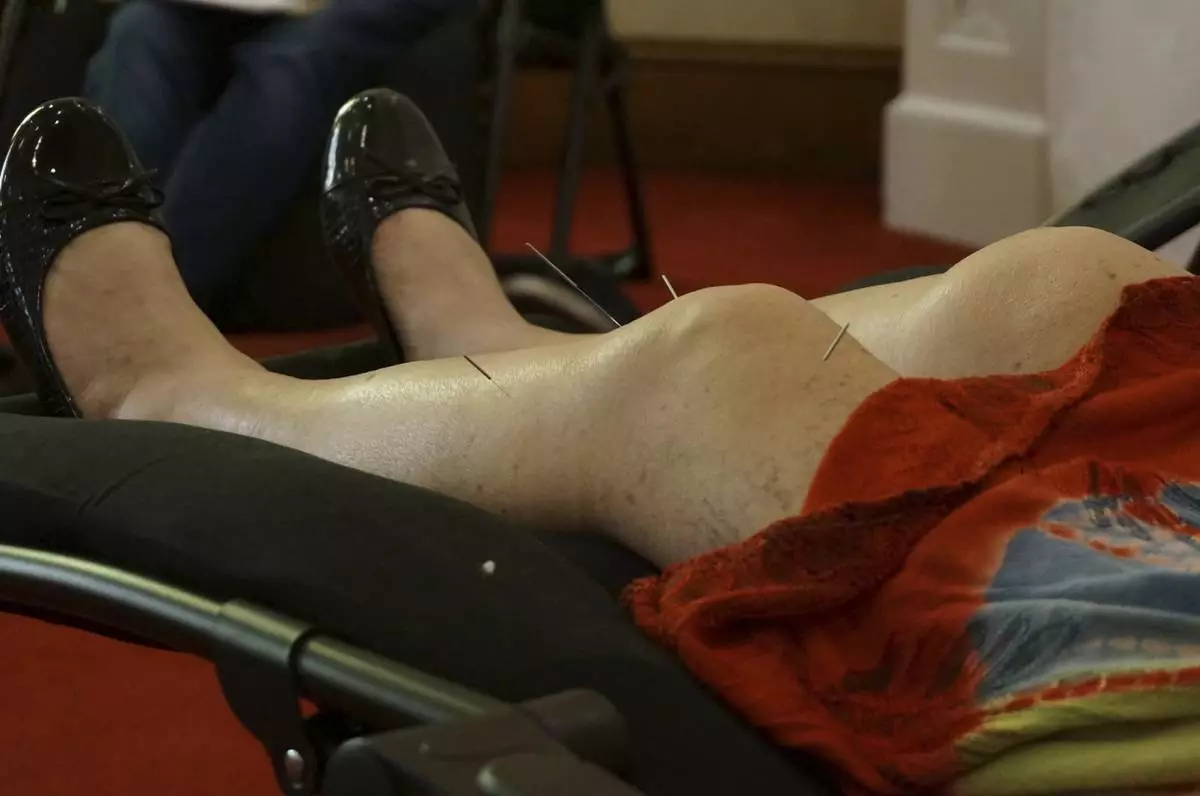
Martha Dominguez receives an acupuncture treatment in the sanctuary of St. Paul’s-San Pablo Lutheran Church, which recently added wellness sessions as part of its migrant ministry, in Minneapolis, Sunday, April 27, 2025. (AP Photo/Giovanna Dell’Orto)
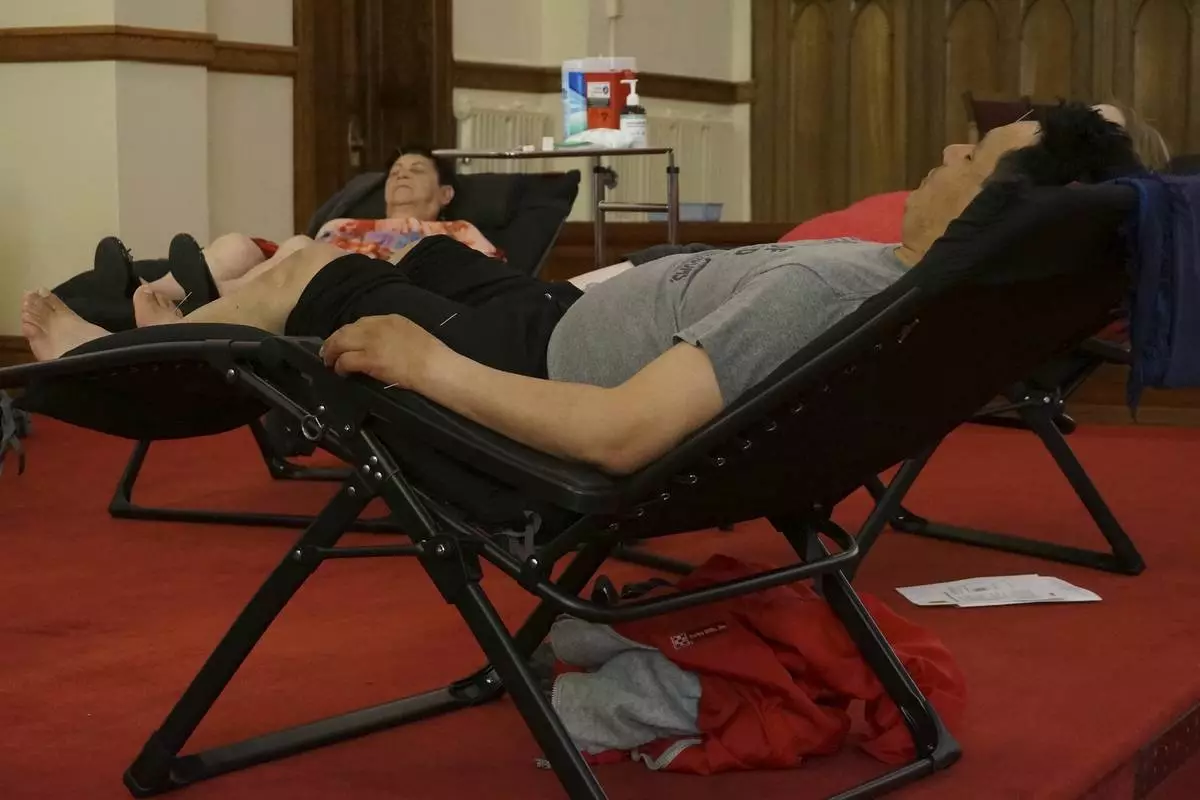
Juan Carlos Toapanta, foreground, and Martha Dominguez, background, receive acupuncture treatments in the sanctuary of St. Paul’s-San Pablo Lutheran Church, which recently added wellness sessions as part of its migrant ministry, in Minneapolis, Sunday, April 27, 2025. (AP Photo/Giovanna Dell’Orto)
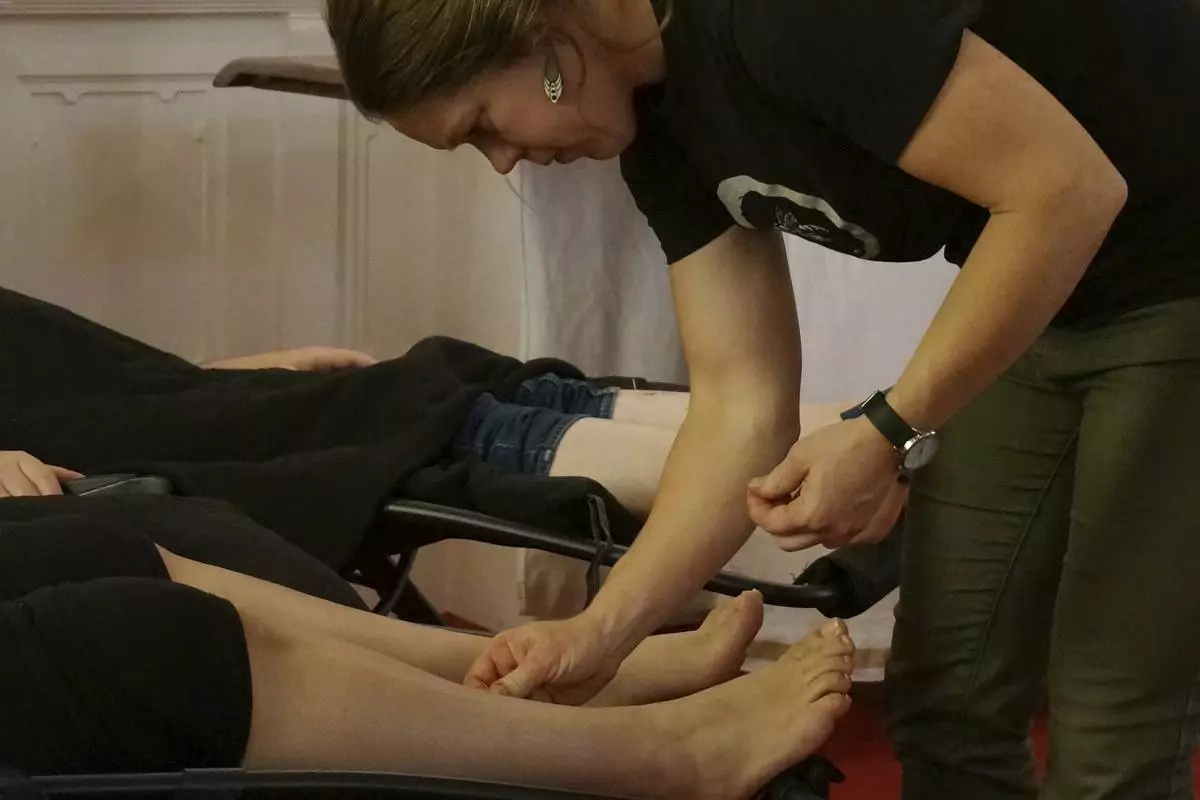
Acupuncturist Kahlyn Keilty-Lucas starts a treatment at St. Paul’s-San Pablo Lutheran Church, which holds wellness sessions after Sunday worship in the sanctuary as part of its migrant ministry, in Minneapolis, Sunday, April 27, 2025. (AP Photo/Giovanna Dell’Orto)
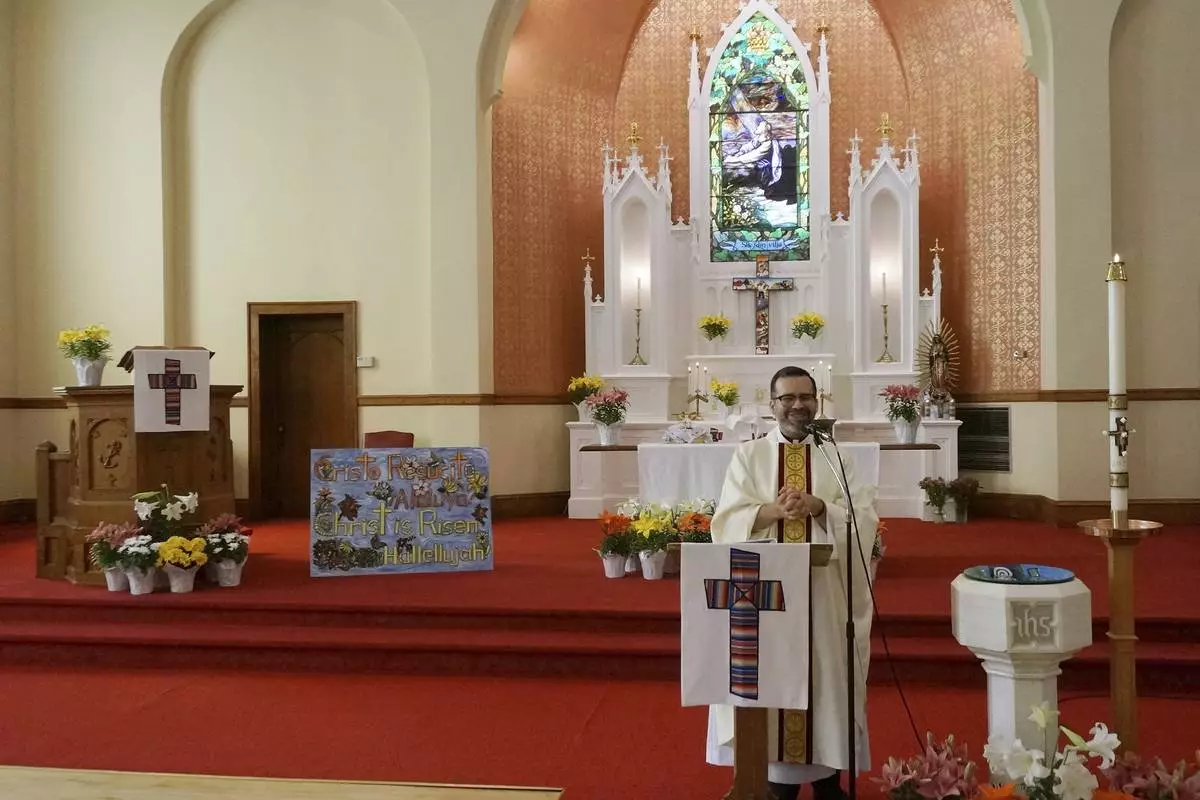
The Rev. Hierald Osorto speaks to the congregation of St. Paul’s-San Pablo Lutheran Church, which holds wellness sessions after Sunday worship in the sanctuary as part of its migrant ministry, in Minneapolis, Sunday, April 27, 2025. (AP Photo/Giovanna Dell’Orto)
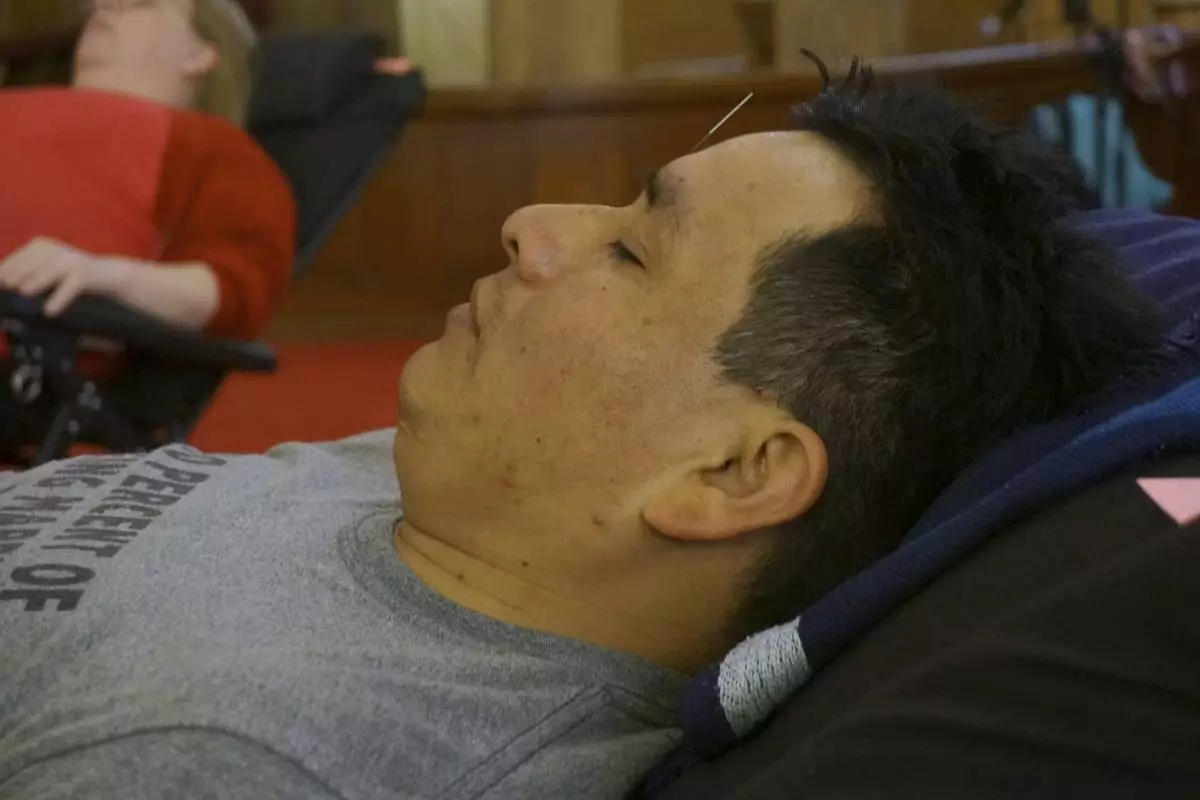
Juan Carlos Toapanta receives an acupuncture treatment in the sanctuary of St. Paul’s-San Pablo Lutheran Church, which recently added wellness sessions as part of its migrant ministry, in Minneapolis, Sunday, April 27, 2025. (AP Photo/Giovanna Dell’Orto)
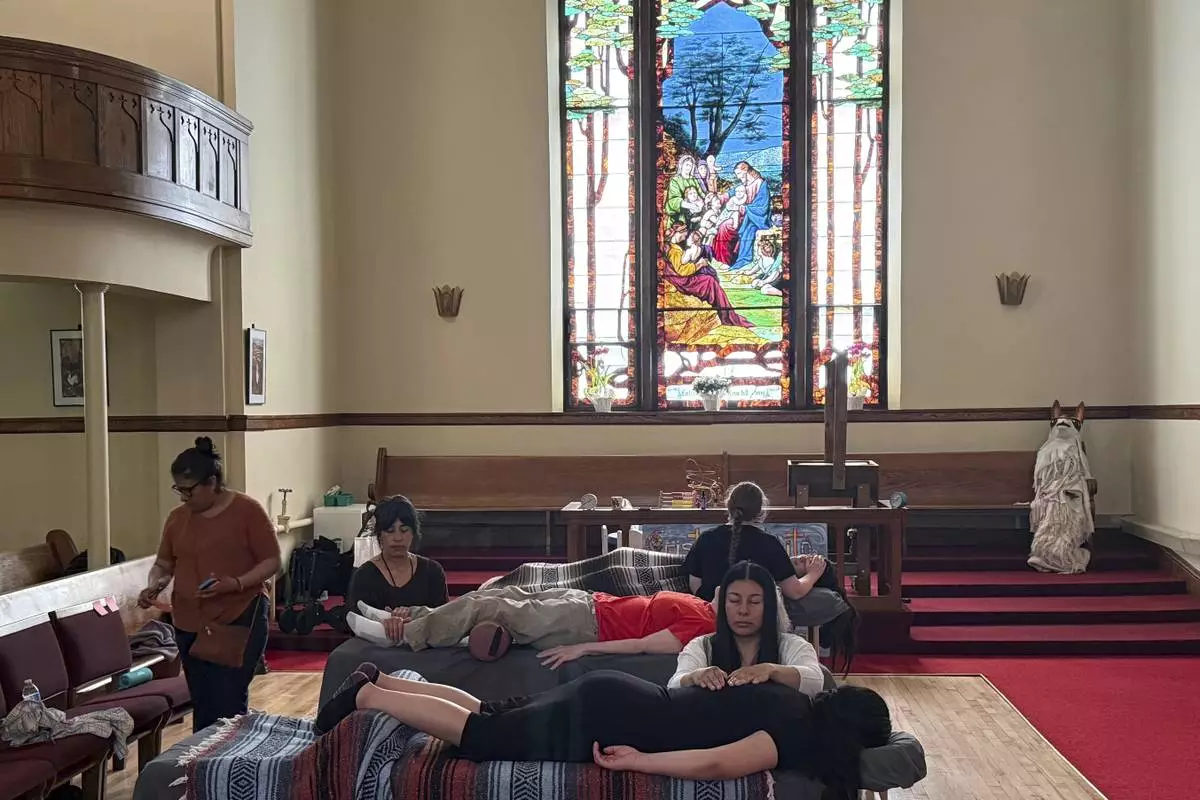
Guadalupe Gonzalez, foreground center, and two other practitioners perform Reiki treatments in the sanctuary of St. Paul’s-San Pablo Lutheran Church, where congregant Lizete Vega, left, helped organize wellness sessions as part of its migrant ministry, in Minneapolis, Sunday, April 27, 2025. (AP Photo/Giovanna Dell’Orto)
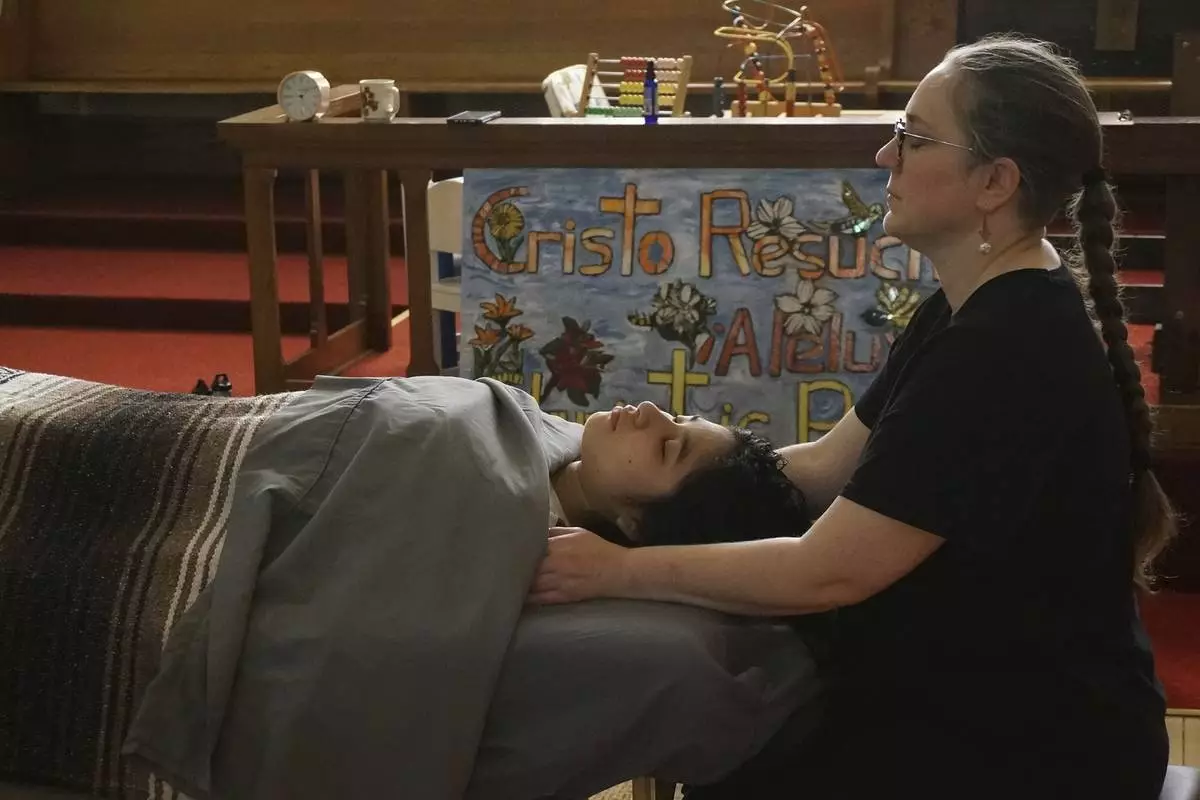
Marakah Mancini de León performs a Reiki treatment near a sign in Spanish reading, “Christ is risen,” in the sanctuary of St. Paul’s-San Pablo Lutheran Church, which recently added wellness sessions as part of its migrant ministry, in Minneapolis, Sunday, April 27, 2025. (AP Photo/Giovanna Dell’Orto)






